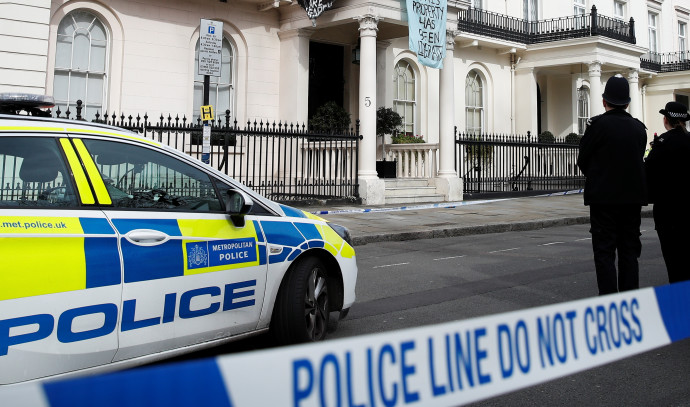Get the free Morning Headlines email for news from our reporters across the world
Sign up to our free Morning Headlines email
The Met Police abused anti-terror powers when it stopped and arrested a French publisher at St Pancras station while he was on his way to the London book fair, a review has concluded.
Jonathan Hall KC, the UK’s independent reviewer of terrorism legislation, said in his report that it is “difficult not to sympathise” with some of what Ernest Moret said during examination when he described the decision to detain him and to seize and download his devices as “crazy” and “not normal” in a democracy.
Mr Moret, who works at Editions La Fabrique, was stopped by borders officers as he arrived at the north London station, and was examined using powers under Schedule 7 of the Terrorism Act 2000, on April 17.
I have reached the clear conclusion that this examination should not have happened, and that additional safeguards are needed to ensure it is not repeated
Jonathan Hall KC
The review made clear that the decision to examine Mr Moret was taken by Counter Terrorism Border Policing Officers from the Metropolitan Police and that it was a “pre-planned examination” based on information “which the police did not evaluate as they ought to have done” – namely that Mr Moret may be associated with “violent extremism or terrorism overseas”.
Officers said he had participated in demonstrations in France over President Emmanuel Macron raising the retirement age from 62 to 64, according to a joint statement from Verso Books.
He was subsequently arrested on suspicion of wilfully obstructing a Schedule 7 examination, contrary to paragraph 18 of the Schedule, by refusing to disclose the PINs to his iPhone and laptop.
Mr Moret said he felt “violated” by the requirement to provide access to his devices, according to the review.
He was bailed, and later released under investigation.
The problem with exercising counterterrorism powers to investigate whether an individual is a peaceful protestor or a violent protestor is that it is using a sledge-hammer to crack a nut
Jonathan Hall KC
Officers concluded they did not think that Mr Moret was a threat to national security or that he would employ violence for a political agenda, the review found.
Mr Moret was informed in June that no further action would be taken against him after the Crown Prosecution Service (CPS) advised that the evidential test for prosecution had not been met.
In reviewing the case to consider whether the Schedule 7 powers were used correctly, Mr Hall said: “Even if the power was exercised lawfully against Mr Moret, that would still leave the question of whether it was right to examine Mr Moret in these circumstances.
“I have reached the clear conclusion that this examination should not have happened, and that additional safeguards are needed to ensure it is not repeated.”
The independent reviewer continued: “The rights of free expression and protest are too important in a democracy to allow individuals to be investigated for potential terrorism merely because they may have been involved in protests that have turned violent.”
The report is a complete vindication of our client’s stance, citing his right to privacy, in refusing to supply his personal data to police
Richard Parry, lawyer for Mr Moret
“The problem with exercising counter-terrorism powers to investigate whether an individual is a peaceful protestor or a violent protestor is that it is using a sledge-hammer to crack a nut,” the barrister added.
Mr Hall characterised the examination as “an investigation into public order for which counter-terrorism powers were never intended to be used”.
The review recommended that the Code is changed to specify that Schedule 7 should not be used for the purpose of public order policing and that officers should be trained to that effect.
Mr Moret’s lawyer said the Met needs to apologise and compensate his client.
Richard Parry said: “The report is a complete vindication of our client’s stance, citing his right to privacy, in refusing to supply his personal data to police. The police demand was totally unjustified.”
Scotland Yard has said it “will continue to be as open as possible about work”.
https://www.independent.co.uk/news/uk/home-news/french-publisher-arrest-st-pancras-metropolitan-police-b2379813.html





